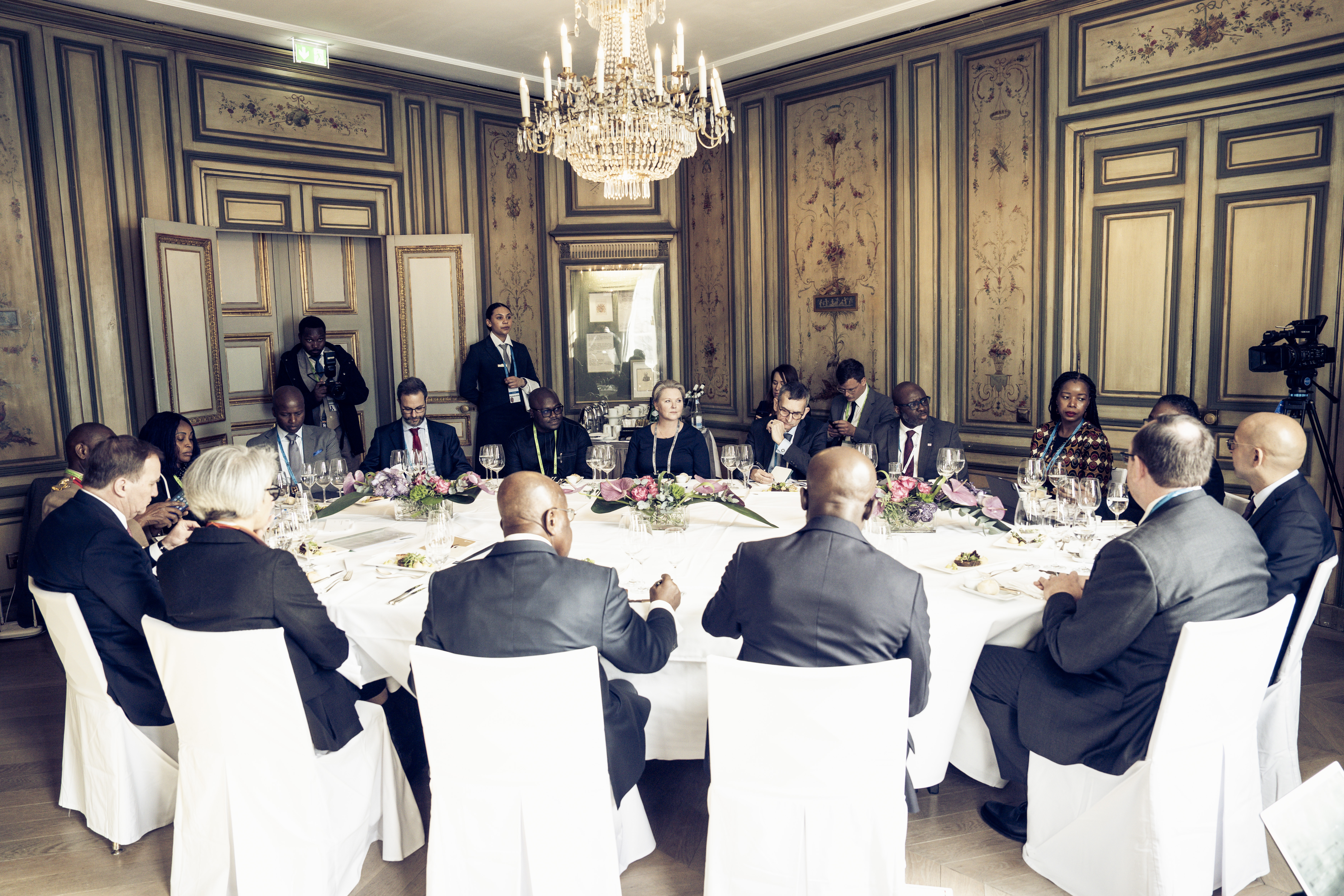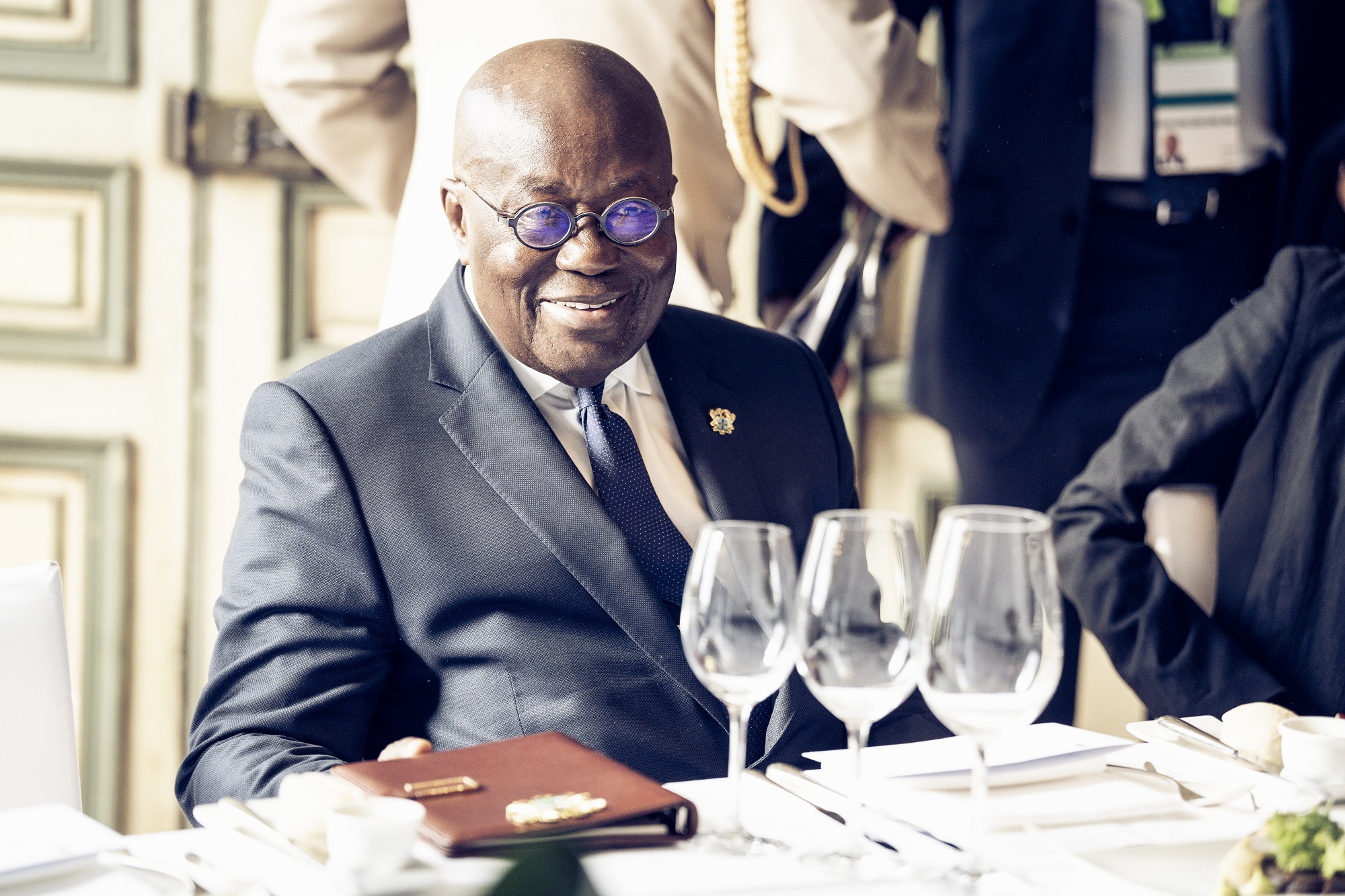UNDP at Munich: continuity in development support essential to mitigating the impact of military coups, say experts
February 28, 2023

Participants at the UNDP-hosted side event at the Munich Security Conference
Munich, 28 February 2023 -- At a UNDP-hosted roundtable on the side-lines of the Munich Security Conference, high-level decision-makers and experts called for the continuity of international assistance and engagement to mitigate the impact of military coups and achieve more inclusive transitions to restore and sustain constitutional order.
Themed “Another Kind of Epidemic - Military Coups and the Need for Democratic Renewal in Africa”, the event, held on 17 February, was a timely opportunity to question why we are facing a return of military coups in Africa and their devastating effects on democratic progress, inclusive growth, economic performance and peacefulness.
Participants engaged in a wide-ranging discussion on the drivers of military coups, how violent extremism and insecurity impact democratic transitions, the socio-economic effects of COVID-19, the ongoing Ukraine war on African stability, and how to contribute to prevention and effective responses to military coups and democratic development in Africa.
Attendees at the private side event included H.E. President Nana Akufo-Addo of Ghana, who delivered a special address, and discussants Annette Weber, EU Special Representative for the Horn of Africa; and Volker Perthes, UN Special Representative for Sudan and Head of United Nations Integrated Transition Assistance Mission in Sudan (UNITAMS). UNDP was represented by Njoya Tikum, Regional Coordinator, UNDP Sub-Regional Office for West and Central Africa / Resident Representative a.i., UNDP Senegal.

H.E. President Nana Akufo-Addo of Ghana delivered a special address at the private lunch roundtable.
In his special address, President Akufo-Addo argued coups are not “durable solutions to Africa’s problems”, calling for existing frameworks to be strengthened and applied uniformly to capture infractions when they occur.
He also emphasized that the principles of democratic accountability, respect for individual liberties, democracy and rule of law must continue to be upheld.
The President’s full statement was disseminated to the media, receiving coverage in English and French in over 15 national and international media outlets including African Business, Ghana Today, MSN and DW.
Reference was made to ongoing UNDP initiatives, including the Africa Facility to Support Inclusive Transitions (AFSIT) and its supporting research, the Journey to Extremism in Africa report, and the stabilization programmes in the Sahel and Cabo Delgado regions.
Discussants suggested a comprehensive approach to face rising violent extremism, including engaging with young people as drivers of politics and the economy, building a regional identity, investing in infrastructure that connects production to local and cross-border markets, and implementing a joint vision in regional security architectures.
Furthermore, consensus and alignment among partners in messages, goals and actions is required, including inclusivity in engaging all segments of society, continuity in development support, and prioritization in interventions were mentioned as key lessons to restoring constitutional order.
Participants repeatedly expressed the importance of maintaining continuity in the provision of basic services, as development support is often viewed as the first “victim” of a coup. National, regional and international actors and partners were encouraged to engage with actors, such as UNDP, to support national dialogue processes as a pathway to ameliorate the economic impact during periods of transition.
Finally, the important role of regional normative frameworks in (de)legitimizing coups was addressed. Experts called for a renewed advocacy for democracy and accountability based on established frameworks and a reinvention of social contract in line with the UN’s Our Common Agenda report. Regional bodies must engage with coup leaders without legitimizing their actions and openly value and support civilian leadership over military leadership.
Overall, participants drew attention to the importance of prevention and anticipatory action rather than just response, particularly with multiple transitions approaching on the horizon. Identifying and understanding these risks earlier to prevent them from escalating into crises, will be critical.
Convened annually in Munich, Germany, the annual Munich Security Conference (MSC) is the world's leading forum for debating international security policy, with the objective of building trust and contributing to the peaceful resolution of conflicts by sustaining a continuous, curated and informal dialogue within the international security community.
About UNDP
UNDP is the leading United Nations organization fighting to end the injustice of poverty, inequality and climate change. Working with our broad network of experts and partners in 170 countries, we help nations to build integrated, lasting solutions for people and planet. UNDP’s Regional Programme for Africa contributes to development by addressing challenges facing the continent and amplifying opportunities related to the priorities and aspirations defined by the African Union and other regional entities.
Learn more at www.undp.org/africa or follow @undpafrica on Twitter, Facebook and Instagram.
For more information, contact:
Michelle Mendi Muita, Regional Programme Communications Specialist, UNDP

 Locations
Locations



